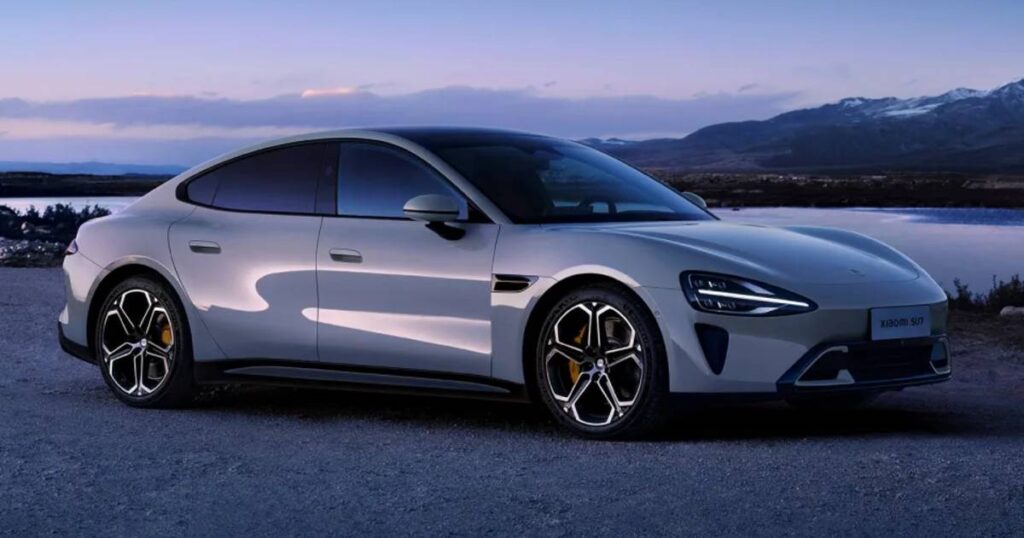Does Tesla’s Innovation Make It a Luxury Car?: In the automotive world, luxury cars are often defined by high-end materials, refined craftsmanship, performance, and exclusivity. Brands like Mercedes-Benz, BMW, and Audi have long dominated the luxury market with their rich heritage, iconic designs, and unmatched quality.
But in recent years, a new contender has entered the fray: Tesla. The electric car manufacturer has rapidly evolved from a niche player into a globally recognized brand, with its vehicles making a significant impact on the luxury car market. But the question remains: does Tesla’s innovation make it a luxury car?
Let’s dive into the key elements of what makes a car “luxury” and how Tesla fits (or doesn’t fit) within this category.
1. Cutting-Edge Technology
Tesla’s innovation lies not just in electric vehicles (EVs), but in how it redefines what’s possible with a car. A hallmark of luxury cars is their advanced technology, and this is where Tesla truly stands out.
Tesla’s Autopilot system is one of the most well-known features, offering semi-autonomous driving capabilities that no other car manufacturer has quite replicated at the same scale. With regular over-the-air software updates, Tesla vehicles become smarter over time, improving everything from the driving experience to safety features.
Moreover, Tesla’s electric powertrain technology offers performance levels that rival—and often surpass—traditional luxury cars. The ability of a Tesla to accelerate from 0 to 60 mph in just a few seconds, particularly in models like the Tesla Model S Plaid, competes with some of the most exclusive sports cars.
This seamless integration of performance, innovation, and technology undeniably elevates the brand’s status, placing it in the conversation for luxury.
2. Design and Aesthetic Appeal
While Tesla vehicles are undeniably sleek and modern in design, their approach to aesthetics differs from traditional luxury cars. Classic luxury brands often emphasize intricate details, high-end materials, and traditional craftsmanship—elements that make their cars feel opulent.
In contrast, Tesla’s design philosophy leans toward simplicity and minimalism. The interiors of Tesla cars are modern, with large touchscreen interfaces dominating the dashboard and limited physical controls.
While this design approach is innovative and futuristic, it doesn’t always evoke the same sense of grandeur as a Mercedes-Benz S-Class or a BMW 7 Series. Tesla’s use of premium materials is commendable but may not reach the ultra-luxurious standards set by traditional manufacturers.
However, the brand’s minimalist, tech-forward interior appeals to those who appreciate modern luxury over classic opulence, and this growing trend towards simplicity cannot be overlooked.
3. Driving Experience
One of the defining aspects of a luxury car is its driving experience. Luxury cars are known for offering a smooth, comfortable ride, exceptional handling, and superior road noise insulation. Tesla’s electric vehicles excel in this department thanks to their low center of gravity, precise steering, and impressive performance capabilities.
The instant torque delivery from Tesla’s electric motors offers exhilarating acceleration, especially in models like the Tesla Model S Plaid and Model X.
While Tesla’s ride quality and performance are impressive, the driving experience can be subjective. Some may find Tesla’s emphasis on performance and technology more appealing, while others may prefer the more traditional, comfort-focused driving dynamics found in established luxury vehicles. It’s also worth noting that Tesla’s road noise, despite improvements, can be louder than that of traditional luxury brands, which have spent decades perfecting sound insulation.
4. Exclusivity and Brand Image
Luxury cars often come with a sense of exclusivity—owning one signals a certain level of prestige and success. Tesla, however, has democratized the luxury car experience by making electric vehicles more accessible to a wider audience.
With multiple models at various price points (ranging from the more affordable Model 3 to the high-end Model S and Model X), Tesla has blurred the lines between premium and luxury segments.
In addition, Tesla’s brand image is highly associated with innovation, environmental consciousness, and forward-thinking technology. For many, owning a Tesla is not just about luxury but about embracing a new era of sustainable, cutting-edge transportation.
While this level of exclusivity may not align with traditional luxury brands, it is significant in its own right, offering a different kind of luxury—one that speaks to innovation, modernity, and ecological responsibility.
5. Customer Service and Ownership Experience
Another key aspect of luxury is the overall customer service and ownership experience. High-end car manufacturers typically offer personalized services, from bespoke customization options to white-glove delivery experiences. Tesla’s service model is different.
With an emphasis on direct-to-consumer sales and online ordering, Tesla has streamlined the buying process, which is often praised for its convenience but criticized for its lack of personal touch.
However, Tesla has made efforts to improve the customer experience, offering comprehensive roadside assistance, an extensive Supercharger network, and a service model that leverages technology for quick diagnostics and repairs. While some customers love the straightforward approach, others miss the traditional dealership experience and the luxury services that come with it.
6. Price Point and Value
Luxury cars are typically associated with high price tags, often reflecting not just the vehicle’s materials and performance but also the brand’s legacy. Tesla’s pricing, while high for electric vehicles, is relatively competitive compared to traditional luxury cars in similar categories.
For example, the Model S, starting around $90,000, offers a comparable or superior driving experience to luxury sedans that cost much more. Additionally, Tesla’s lower maintenance costs—due to fewer moving parts in electric drivetrains—offer long-term value that traditional luxury vehicles can’t match.
Still, the relatively broad price range of Tesla vehicles means that not every model is viewed as a “luxury” car by traditional standards. While the Model S and Model X can definitely be categorized as luxury vehicles, the Model 3, with its lower price point, may not have the same prestige.
Conclusion
Does Tesla’s innovation make it a luxury car? The answer is nuanced. Tesla’s groundbreaking technology, impressive performance, and futuristic design place it firmly in the conversation for luxury status, especially with its top-tier models like the Model S and Model X.
However, the brand’s more affordable models, minimalist interior, and non-traditional service model might not fully align with the traditional expectations of luxury.
What Tesla does offer is a redefined version of luxury—one that emphasizes innovation, sustainability, and cutting-edge technology. Whether or not this makes Tesla a luxury car depends on how you define luxury. If luxury is about performance, technology, and exclusivity, Tesla has certainly earned its place.
If it’s about tradition, craftsmanship, and brand heritage, then the jury may still be out. Ultimately, Tesla is pushing the boundaries of what we consider luxury—and in doing so, it’s changing the very definition of the term.



